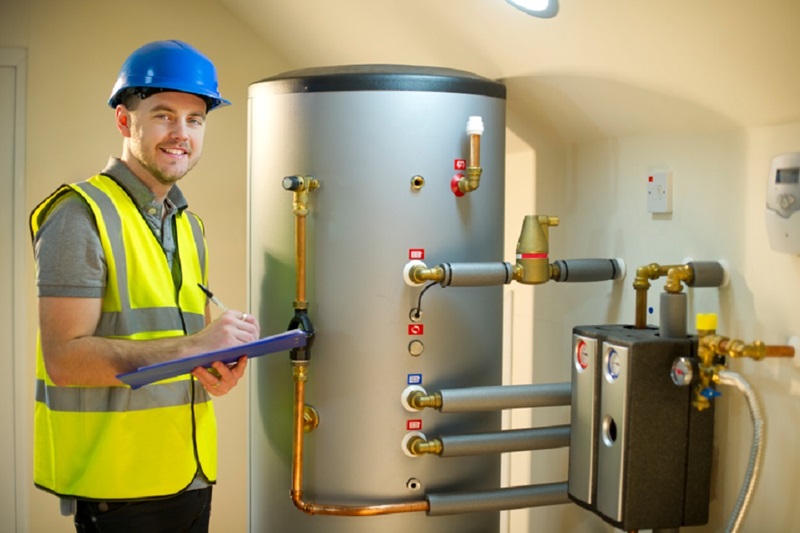
Ever woken up just as the day dawns, looking forward to a hot shower to pry open your eyes and kick-start your day, only to be greeted by a spine-tingling splash of cold water? Or perhaps you’ve always wondered, while washing up after dinner, just where all this on-demand hot water machine is coming from? If so, it’s high time we unravelled the magic behind one of the unsung heroes of our everyday comfort- hot water.
In this blog post, we are going to delve into the world of hot water, understanding how they function, why they are essential to our daily routines, and what sets one model apart from another. From interior mechanisms to exterior designs, we’ll strip down these complicated devices to make them not just relatable but easy to understand. Years of continuous innovation have refined the once bulky and inefficient reservoirs into sleek, energy-saving essential home appliances. It’s time we pay homage to their heritage while appreciating the modern marvels they have become.
Ultimately, we will satisfy our mutual curiosity about hot water while empowering us with the right information to make informed choices when choosing our next unit, whether for upgrades, replacements, or new installations.
What is a Hot Water Reservoir?
A hot water, sometimes referred to as a hot water tank, boiler, or heater, is an enclosed system that uses energy to heat and store water until needed. Imagine a giant thermos flask that doesn’t just keep hot water but actually makes it! The reservoirs are designed for convenience and efficiency, delivering hot water straight to your taps, showers, or appliances whenever required.
Most residential tanks come in a variety of sizes, typically ranging from 20 to 80 gallons. Their design is not just about size but also about the type of energy they rely on for heating: gas, electricity, or even solar. The choice between these energy types often boils down to the availability, cost, and personal preference.
How Does a Hot Water machine Work?
At its very basic, a hot water machine operates through a simple principle of heating water and keeping it ready for use. It's like a hot water factory operating in your basement, under your kitchen sink or wherever it’s installed. The system involves a series of steps, all crucial in the process of heating and delivery.
The heating process happens inside the tank, aided by a heating element or a gas burner, and regulated by a thermostat. Then, the Comprehension of the inner workings, such as the dip tube, heat-out pipe, drain valve and others, will be vital when selecting the best fit for your specific needs.
Why is a Hot Water Reservoir Important?
Hot water is an essential component of modern living, enabling us to carry out daily chores such as dishwashing, laundry, and bathing with ease. Hot water is even more critical in settings involving health and hygiene such as hospitals. Therefore, owning a reliable hot water reservoir is not a luxury, but a necessity.
Moreover, an efficient hot water reservoir can significantly lower energy bills, contributing to sizable savings in the long run. Besides, the right hot water reservoir can boost the property's value, attract potential buyers, or tenants if you ever decide to sell or lease your property.

Choosing the Right Hot Water Reservoir
Choosing the right hot water reservoir is not simply about going to the store and pointing to the shiniest one on the shelf. It requires a careful analysis of various factors: The number of people in your household, your daily hot water needs, the energy type to which you have access, and your budget among others.
Since hot water reservoirs come with different features and variations, it’s important to understand the pros and cons of each option before making a choice.
Pros and Cons of Different Types of Hot Water Reservoirs
As we explore different types of hot water reservoirs, it's evident that each has its strengths and weaknesses. Traditional storage-tank models have the advantage of lower upfront costs and ease of setup. However, they can consume more energy in heating and maintaining hot water.
Tankless models, on the other hand, offer on-demand hot water supply and greater energy efficiency, but may have higher initial costs. Solar-powered models offer long term energy savings but require the most significant upfront investment and optimal solar exposure.
Understanding the Maintenance of Hot Water Reservoirs
Proper maintenance of hot water to extends their lifespan, boosts their efficiency, and prevents potential dangers such as explosions. Regular checks and inspections, cleaning out sediment, adjusting thermostat settings, and insulating the tank are some of the key practices in maintaining a hot water reservoir.
Conclusion
In a world where hot water has become a convenience we can't do without, understanding how hot water reservoirs operate is a must. The power to choose the best model to meet your hot water needs lies in knowing what they are, how they work, and what to look out for when investing in one. Moreover, embracing the pros and cons of different types of reservoirs will guide you in your selection process.
It cannot be stressed enough that maintenance is key to the long-term service of your hot water reservoir. Valuable attributes such as durability, efficiency, and safety can be significantly enhanced through proper care. Ultimately, the value derived from your hot water reservoir is directly proportional to the knowledge invested in its selection and care. Trust us; it’s a worthy investment!





0 Comments